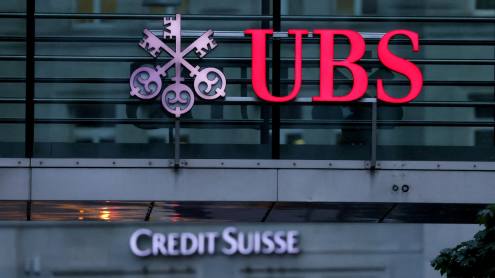Several years of economic downturn and three years of growth still leave Spain’s gross domestic product (GDP) lagging that of 2008. But recovery and expected economic growth of 3.1% in 2017, according to the International Monetary Fund, could see its economy outpace 2008’s GDP this year, both at current and constant prices. This would be a first since the eurozone sovereign debt crisis – but Spain’s constitutional crisis and dispute with its strongest region economically, Catalonia, has the potential to spoil the party.
The long-brewing differences between the Spanish government and the autonomous community of Catalonia came to a head when Catalan leaders held an independence referendum on October 1, which does not conform with the Spanish constitution. Following the referendum – hailed as a victory by the separatists – prime minister Mariano Rajoy’s government was criticised by some for the intervention of, and tactics used by, the police force.
A worsening situation
Since then, the situation has caused the national government to impose direct rule over the region and call new regional elections for Catalonia on December 21, while some of the separatist political leaders have been imprisoned.
“This is a really serious political crisis, the worst Spain has had in 40 years of democracy,” says Ángel Talavera, senior eurozone economist at analyst firm Oxford Economics. “There will be an impact on the Catalan economy, for sure. Still, the main question for me is how much of this impact on Catalonia will actually translate into a net impact on Spain.”
He points to the uncertainty the situation is creating in Catalonia, the companies that have already moved their headquarters, and the expected impact on tourism and investment decisions.
Immediate indicators come from investor confidence in bonds by the Spanish sovereign and the country’s major companies on the stock market. And Spain’s largest companies combined in the IBEX 35 index have been hit. The index lost some 3.25% in value between the beginning of August and November 14 – during the same period the European Euro Stoxx 50 rose by about the same amount.
The picture in the bond market is significantly better. “This is the kind of crisis, had it happened in 2012, that would have sent Spain’s bond yields rocketing. Now they are barely moving,” says Mr Talavera, who adds that the European Central Bank’s bond buying programme is making a big difference.
Pain in Spain?
So contagion in Europe does not seem to be a risk. Still, the Spanish economy could be hit. Catalonia contributes the largest share of any region to Spain’s GDP, between 16% and 25% depending on the data source. Catalonia also welcomes the second largest number of tourists of any region in Spain, according to Eurostat, and as its capital Barcelona is an especially popular attraction, there is a risk that some city travellers might instead opt for a city destination outside of Spain.
Rating agency Moody’s warned at the beginning of November that political tensions over Catalonia and continuing uncertainty “are likely to damage economic sentiment and consumer spending, both in the region and for the Spanish economy as a whole”. Moody’s now forecasts GDP growth of 2.9% for Spain in 2017 and 2.3% in 2018, a drop of 0.1 percentage points and 0.2 percentage points, respectively. “At least for now, the escalating tensions negate the beneficial impact of a range of more positive recent developments in Spain’s financial sector and the economy,” says Moody’s.
Many economists are so far holding fire before significantly changing their growth forecast for Spain. Among them is Mr Talavera, who has only slightly lowered his estimates by 0.1 percentage point to 2.6% for 2018.
While the latest available economic indicators cover September, as well as the third quarter of 2017, some initial attention can be drawn to economic survey data. “The first number that made me think that the fourth quarter might be weaker was the services Purchasing Managers Index [PMI] for Spain in October,” says Mr Talavera, who adds that a slower fourth quarter could also lead Spain’s economy to slow in 2018.
The PMI of service companies published on November 6 showed an expansion in business activity, albeit the slowest in Spain since January, movement that diverged meaningfully from the rest of Europe.
Survey data from the IHS Markit Spain Business Outlook illustrated a drop in business sentiment in October to the lowest level since mid-2016. Although at 42%, the net balance of companies predicting a rise in activity over the coming year still signals solid confidence among firms, while Spain’s manufacturing PMI underlined further growth momentum in October.
Worst-case scenario
The latest official economic forecast by Spain’s central bank, Bank of Spain, published in September predicts 2017 GDP increase of 3.1%, followed by 2.5% in 2018 and 2.2% in 2019. Its next update is scheduled for December 15, six days ahead of Catalonia’s regional elections, but the central bank has also released simulations of hypothetical economic scenarios for Spain in its November Financial Stability Report.
The worst-case scenario, according to the calculations, amounts to a reduction of Bank of Spain’s base case GDP growth figure by more than 2.5 percentage points between the end of 2017 and year-end 2019. This would mean Bank of Spain’s base-case economic growth estimates would be cut by almost 60%, more than $27bn.
In a less severe scenario with a temporary increase in uncertainty, Spain’s economic growth in the same period would be reduced by a cumulative 0.3 percentage points.
These scenarios are “illustrative and provisional”, the central bank cautions, but highlight “the significant economic risks and costs of the situation caused by the independence initiatives in Catalonia”, adding that “a prompt return to normal” could mitigate these risks.
Still, as experts expect long and protracted negotiations between Catalan leaders and the Spanish government, irrespective of the outcome of the December 21 elections, this leaves plenty of room for further escalation and yet more blows to Spain’s economy.











